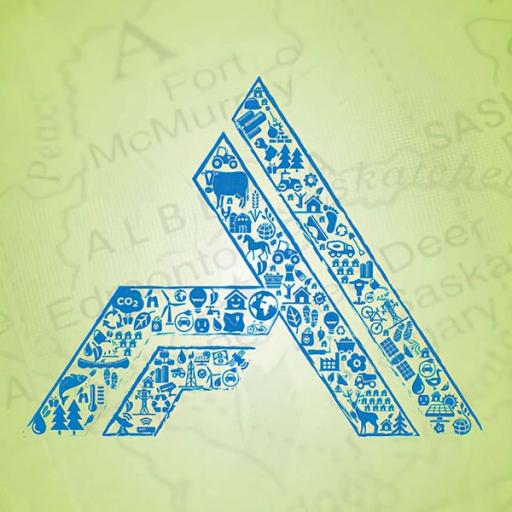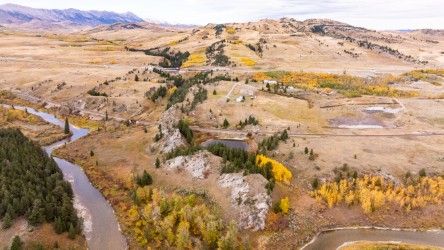October 7, 2020
September 2020 Community Investment

The Board of Governors of the Alberta Real Estate Foundation approved $520,000 in community investment projects at their recent meeting.
The Alberta Real Estate Foundation invests in real estate policy, research, practices, and education that strengthen Alberta’s communities. Under the Real Estate Act, whenever a consumer deposits money in trust through a real estate broker, property manager, or commercial broker, the interest earned on the deposit is accumulated and forwarded to the Foundation for reinvestment into Alberta’s communities. Individually, it is nickels and dimes. But across the province, it adds up.
Since its inception in 1991, the Foundation has invested over 23 million in grants to 640 initiatives across Alberta.
Projects approved at the September meeting include:
- Studying the impact of COVID-19 on Alberta real estate markets – University of Alberta, Department of Resource Economics & Environmental Sociology
This project uses data-driven approaches (e.g., machine learning) to evaluate the impact of the COVID-19 pandemic on Alberta’s real estate markets. The University of Alberta will collaborate closely with the REALTORS® Association of Edmonton so that the research aligns with industry stakeholder interests. The main objective is to analyse the impact of COVID-19 on: market prices, listing durations, valuation of specific property attributes, how these impacts vary by neighborhood or region, how these impacts vary by property type.
The Edmonton real estate market will act as a pilot project for the development of statistical methods, analytical tools, and workshops. As the REALTORS® Association of Edmonton and other organizations seek to generate value from proprietary transactional data, the results and outcomes of this project will serve as the basis for the analysis of other real estate markets across Alberta. - Industry toolkit for healthy, resilient homes and communities – University of Alberta, School of Public Health
The COVID-19 pandemic and related public health have drawn people’s attention to how critically important their homes, neighbourhoods, and communities are to their health. Public health works proactively to create the conditions for long-term recovery by focusing not only on the disease but on promoting the health of people. Healthy people are the foundation of a healthy economy.
The engagement process, which will include real estate professionals as a key stakeholder, and the resulting easy-to-use online toolkit will help provide supports for Albertan’s healthy home choices. The toolkit will identify factors needed to drive economic growth, sustain community vitality and resiliency, promote environmental stewardship, and improve citizens’ health outcomes. - Preserving Heritage Districts in Calgary – Calgary Heritage Initiative
The Calgary Heritage Initiative will create educational resources for real estate professionals, residents, and municipal leaders on the impacts of heritage policies and bylaws to protect Calgary’s heritage districts. Heritage districts and heritage places of interest can create niche markets for shopping, living, and eating in “differentiated” heritage environments that contribute to urban liveability and the attraction of talent. - Feasibility study and market assessment for affordable and accessible housing – Accessible Housing Society
With the current economic and health crisis, Albertans need options related to accessible, suitable housing more than ever. This feasibility study and market assessment will identify gaps in Calgary regarding accessible, affordable housing and establish plans to meet the demands in community, including what type of programs and services need to be developed. - Impact of invasive plants on homes and real estate value – Alberta Invasive Species Council
Updating the Identification Guide for Alberta Invasive Plants – Invasive species threaten Alberta’s environment and economy. They outcompete the native species that provide food and habitat for wildlife; some pose risk to public safety; others are problematic in crop fields, resulting in reduced yields; and other species like Japanese knotweed exhibit such vigorous growth that they can break through concrete building foundations. The Alberta Invasive Species Council will to work with local municipalities and the Alberta Association of Agriculture Fieldmen to update and reprint the widely popular Identification Guide to Invasive Plants in Alberta.
The new version of this guide will include provincial distribution maps, information on prevention initiatives, and will also indicate the species that are problematic in specific habitats (e.g., urban areas, farmland, in grassland ecosystems forests, etc.). There are several invasive plant species that are particularly problematic in urban areas that homeowners and realtors should be aware of. These can be a liability as landowners are responsible for controlling or eradicating prohibited noxious or noxious invasive plant species that persist on their property as per the Weed Control Act. - Transportation options to support Albertans living in rural communities – Association for Life-wide Living (ALL) of Alberta
Rural Transportation: Knowledge Sharing for 2020 and Beyond – Access to transportation is a ubiquitous issue facing rural Albertans. In many cases, if a resident lacks access to a private vehicle, it is nearly impossible to live and work in a small Alberta community. To make matters worse, over the past several years, the few existing transportation services have begun to disappear. In collaboration with partners like Alberta Rural Development Network, the Association for Life-wide Living (ALL) of Alberta will revitalize and reconnect Alberta’s rural transportation stakeholders to seek viable solutions to this ever-growing problem. Transportation options will help ensure that people can continue to live, work, and thrive in rural Alberta. - WPACs/Municipal Joint Initiatives and their Effect on Municipal Planning for Sustainable Communities in Alberta – University of Lethbridge
Alberta’s 2003 Water for Life strategy marked a major shift in the management of Alberta’s water resources to better enable shared responsibility and environmental stewardship. The province’s 11 Watershed Planning and Advisory Councils (WPACs) cover the entire province and were created as the main mechanism to foster collaboration at the watershed level. Given that municipal governments play a central role in the management of land and water, they are crucial WPAC partners. In collaboration with four WPACs, this study will evaluate the effectiveness of joint WPAC-municipal initiatives that enable land stewardship and planning policies that impact real estate, water management, and ecosystem resiliency for sustainable communities in Alberta. - Real Estate Industry / Community Sponsorships and Small Grants 2020-2021 – Alberta Real Estate Foundation
The purpose of the small grants and sponsorship fund is to enhance the Foundation’s profile and strengthen its connection to the real estate industry through the support of industry-related initiatives and community events. This fund allows the Foundation to respond nimbly to the needs of its stakeholders.
Topic
Similar News


